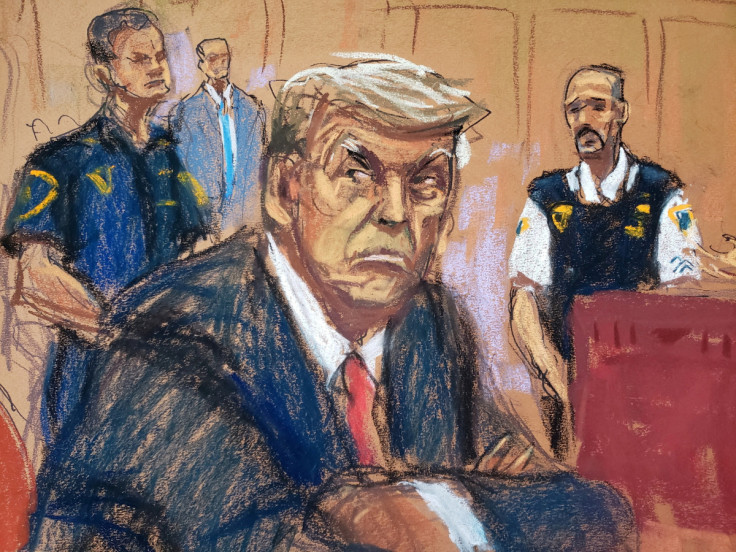Analysis-Trump Indictment On Hush Money Charges Brings Few New Facts

The long-awaited charges against Donald Trump centering on hush money payments to suppress damaging news stories ahead of the 2016 election revealed few new details about a case that prosecutors have probed on-and-off for five years.
Manhattan District Attorney Alvin Bragg said on Tuesday that Trump made false records in his family real estate company's books to conceal that he reimbursed his personal lawyer Michael Cohen for a $130,000 hush money payment before the 2016 election to a woman who says she had an affair with him.
The case marks the first time a former president has been criminally charged, and Trump's ongoing campaign to retake the presidency in 2024 has heaped additional scrutiny onto the case. Trump and his Republican allies claim the prosecution is politically motivated.
Legal experts not involved with the case underscored that its ultimate strength will likely hinge on evidence that has not yet been made public.
Trump has denied the allegations and pleaded not guilty during his first court appearance Tuesday.
Falsification of business records in New York is a misdemeanor but is a felony when done with the intent to conceal another crime.
In a press conference, Bragg said the scheme aimed to cover up a violation of a New York state law making it illegal to conspire to "promote a candidacy by unlawful means." He said the $130,000 payment exceeded the federal limit on campaign contributions.
But the 34-count indictment did not get into specifics of the crimes allegedly being concealed, to the surprise of some legal experts.
"I was expecting them to have a clear, precise and cogent theory that there was intent to conceal a crime, that this is what that crime was and here's how he did it. You don't see that here," said attorney Mark Bederow, a former prosecutor at the Manhattan District Attorney's office.
Cohen pleaded guilty to violating federal campaign finance law in 2018 over the payment to Daniels, though Trump was not charged with a crime then. Bragg's predecessor also examined the hush money scheme but did not bring charges.
"What's different? What does he have that he didn't have 10 months ago?" said Sarah Krissoff, a partner at the Day Pitney law firm and former federal prosecutor.
It is unclear what additional evidence, if any, Bragg may have presented to the grand jury in support of the indictment.
Bragg told reporters on Tuesday that the law does not require his office to specify the underlying crimes in the indictment. And some legal experts said it is not unusual for initial indictments to be thin on details of new evidence prosecutors presented to the grand jury in support of the indictment.
The indictment focused on Trump's reimbursement checks to Cohen. But a separate filing by prosecutors, known as a statement of facts, detailed similar schemes Trump allegedly orchestrated to silence two other people who said they had damaging information about him.
That could help Bragg's office demonstrate to a jury Trump intended to commit a crime, other legal experts said.
"What they've done is taken a bare bones falsifying business records indictment, and through the statements of facts, presented it as part of a conspiracy, which I think is very effective," said Adam Kaufmann, another veteran of the Manhattan DA's office.
The indictment also left some lingering doubts as to how prosecutors would prove Trump intended to commit a crime. Cohen, who has said Trump directed him to make the payment, testified before the grand jury that last week indicted the former president.
But he pleaded guilty in 2018 to lying to Congress, as well as to campaign finance violations for the Daniels payment, which could leave him open to attacks on his credibility by Trump's defense at trial.
Jeremy Saland, another former member of the district attorney's office, cautioned that prosecutors know they "have a very long road ahead with these charges" as they will have to prove to a jury that Trump intended to break election law even though he is not criminally charged with doing so.
© Copyright Thomson Reuters 2024. All rights reserved.





















